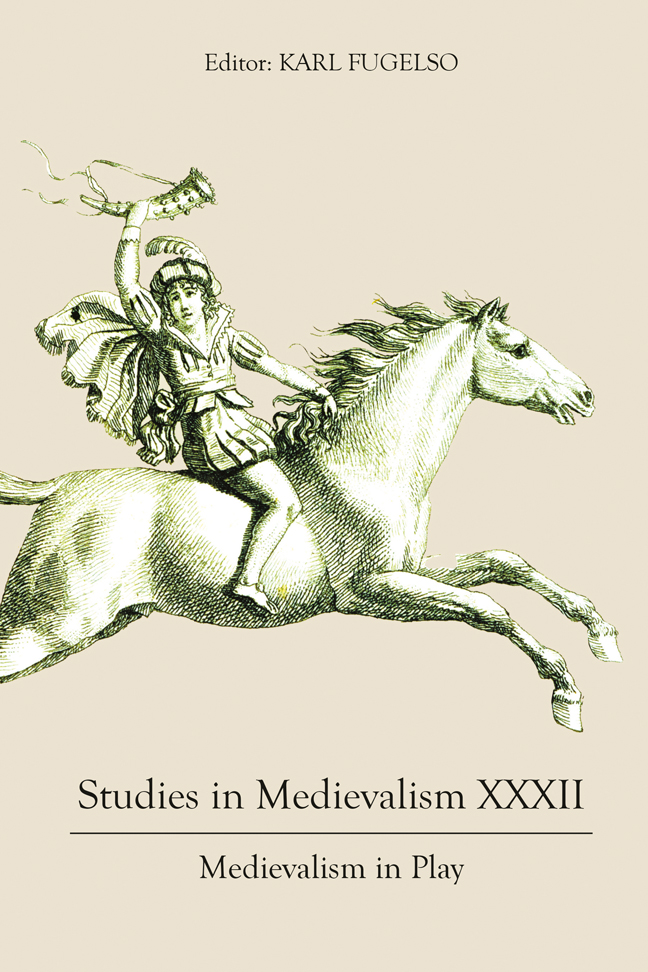Sexual Play and Medievalism: Alice Munro's “The Beggar Maid”
Published online by Cambridge University Press: 12 January 2024
Summary
Play as a concept is both plastic and elastic, and contradictorily it has many sharp corners. It is not always, or even often, benign or ignorant. Any child playing with dolls is well aware that limbs and heads can come off, and frequently do. When that happens, the child discovers the unpleasant truth that joyous play can intersect with unhappy reality. Playfulness challenges and questions the mores and behavior patterns of society, and pokes at the crevices to widen them, or to explore them, or both. Sexual play, in particular, is fraught with ethical and moral dilemmas, and when the sexual play has medievalism as its core stratagem, it poses many questions for us. Medievalists turn to the complicated questions raised by fin amour as it was codified and publicized in the twelfth century and spread broadly across most medieval European societies by the fourteenth, becoming imbricated in Christian ideology. Medievalism scholars often examine this element of medieval society as recreated in modern fantasy and romance tropes in many modern media, and heavily inflected by Victorian morality. Sex itself, less obviously available to us in medieval texts, has not always attracted as much attention from those using medievalism as an organizing strategy for their work. Until very recently, when medieval sex erupted onto various television and computer screens, and queering the medieval became, rightly, a popular approach, medievalism in its approach to sexual questions tended towards a profoundly conservative approach. And yet, sexual play as it intersects with medievalism is an important approach for many creators in the field and has been for some time. For investigating this kind of play, the work of Alice Munro (a Canadian short-story writer who won a Nobel Prize for Literature in 2013) stands out as particularly fearless and fascinating. In general, her sexual play and playfulness often exploit medieval materials, or medievalist materials. She interweaves medievalizing themes through many of her stories, and very unobtrusively uses medievalism as a crowbar to delve into the question of what should be taken seriously and what should not. Munro’s medievalism tantalizes, offering a subtle path for approaching difficult sexual reactions; that is, she uses the medieval as a way of distancing her protagonists from their sexuality, but at the same time of highlighting it.
- Type
- Chapter
- Information
- Studies in Medievalism XXXIIMedievalism in Play, pp. 3 - 10Publisher: Boydell & BrewerPrint publication year: 2023



